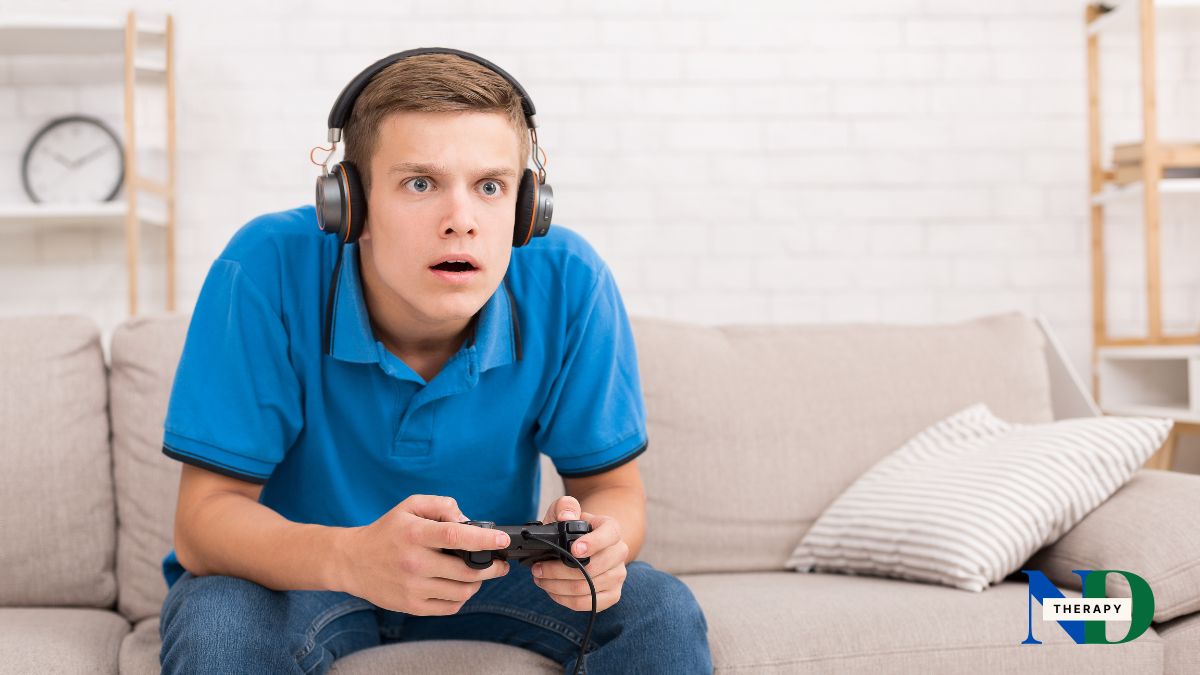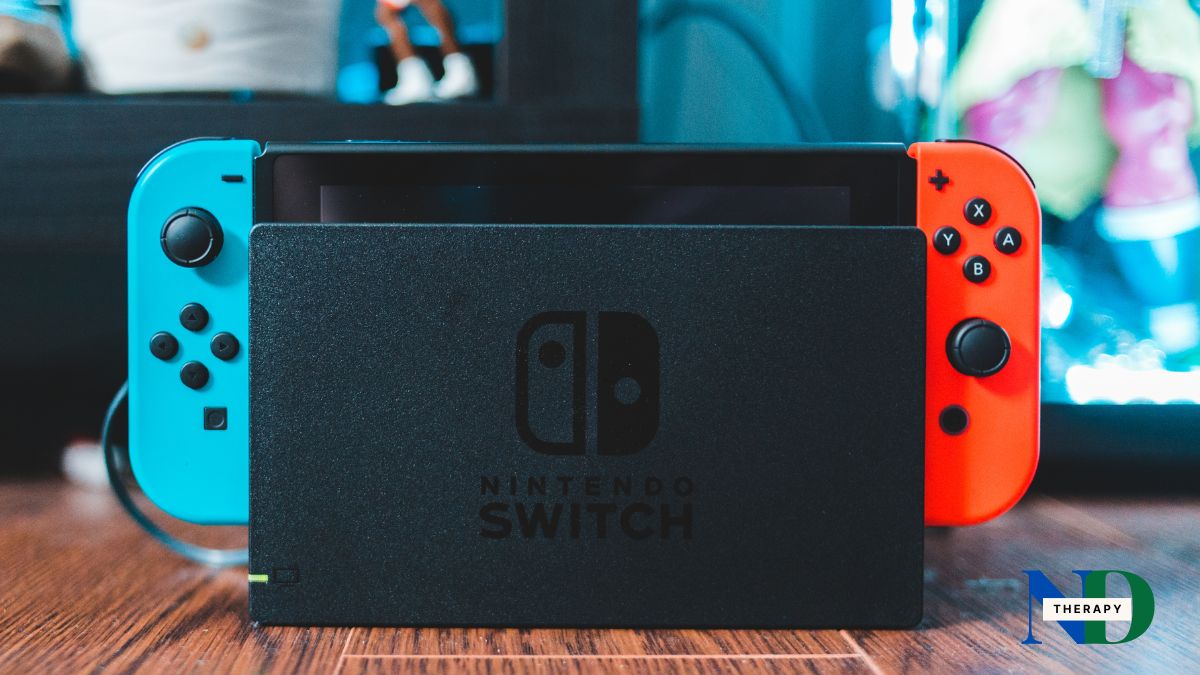
Original Publication Date: March 27, 2017
The alarm clock rings, and you look over and see it is 12:00 PM. Time to get up; you have training to do. You get up and take a shower quickly so as not to waste time. Once done, you go to the refrigerator, grab an energy drink, and then go to your room to begin work. You turn on the PC and load up DOTA 2. Hopefully, your team is ready to train today. After talking to your team members on Steam, you begin. You have 14 hours of matches set throughout the day, as you have less than five months before the big tournament. 5 million dollars are on the line, and you plan to win it this year.
You have been training with your team for months, often 12-16 hours daily. Energy drinks and Hot Pockets are your fuel as you push to be the best. You are an Esports athlete, and DOTA is your job and your life. There is no time for friends or relationships. All that matters is the tournament and the prize.
Your team has won around $300,000 in the past year, and you feel pretty good. With over $60,000 won, you make more than most teenagers your age. Dropping out of school was worth it. You will become a millionaire if you can win this tournament. You and your team will become famous, and companies will pay for you to promote them on your Instagram and X accounts. Wealth and fame will be yours. Let it begin.
The above scenario, while fictional, is the hope and dream of many teenagers today. Esports are real, with 237 million dollars won in 2022 alone. Thousands of players throughout the world compete in hundreds of tournaments yearly. What happens to players who are not the best, and what happens when age catches up to them, and they have no other skills? The reality is, for the grand majority of teenagers, becoming an Esports athlete is not a good idea.
What Are Esports?
Esports stands for Electronic Sports, which are video games where players compete against each other for prizes. Most Esports are team-based, with one team going against another. For the larger tournaments, prizes are in the millions. Often, players form teams with other players, hoping to compete in tournaments and increase rankings. As teams win tournaments, they qualify for bigger tournaments with greater prizes. For example, The International 2021 for DOTA 2 offered over 40 million dollars in prize money. The first-place team won over 18 million dollars, split among five players.
In Esports, there are many different games. Some are first-person shooters, while others are team-based strategy games. Below is a table of the Top 10 Esports games in 2024 and total prizes, provided by the site E-Sports Earnings:
- DOTA 2 – $23,856,354.83
- Counter-Strike 2 – $20,847,764.41
- Arena of Valor – $19,824,248.42
- Fortnite – $12,323,280.44
- League of Legends – $8,700,298.79
- Rainbow Six Siege – $7,874,873.65
- Valorant – $7,149,689.8
- PlayerUnknown’s Battlegrounds Mobile – $6,915,713.64
- Rocket League – $6,846,018.9
- EA Sports FC 24 – $6,816,757.14
For some, Esports is a lucrative profession. Johan Sundstein, also known as “N0tail.” is ranked number 1 in the world in total winnings. According to the site E-Sports Earnings, he won $7,184,163.05 between 2010 and 2021. Over eleven years, he has earned over $650,000 a year playing DOTA 2. Of the top Esports players in the world, 164 have made over 1 million dollars in total winnings. As of 2021, he has retired and has not earned anything playing Esports.
Is Becoming An Esports Athlete Profitable?
For some, becoming an Esports athlete is profitable; however, for most, it is not. Only 164 players in the world have become millionaires playing video games. In 2022, there were 30,679 players in 5272 tournaments. A total of $237,219,732.87 was won, averaging out to be $7,732.32 per player. For most players, becoming an Esports athlete will not provide enough money to replace a full-time job. In 2024, the 500th-best player in the world won $71,816.36.
Most Esports athletes train 40+ hours a week, with some 80-100 hours. This time takes away from work, school, and relationships. Many Esports athletes sacrifice everything to live their dream. They justify it by citing the money they could win and comparing themselves to other professional athletes. What happens to them when their skills decline, and they can no longer win tournaments? With no education or other skills to fall back on, they will likely end up with nothing in the end.
What About Your Average Teenager?
Reality is worse for the average teenager who is not naturally gifted enough to become an Esports athlete. Most will spend the same amount of time training, only to not be good enough to compete in real tournaments. They will convince themselves they must “try harder” and “train more.” Many drop out of school and do not work, sitting at home playing the game all day. They will refuse to get a job, cite themselves as athletes, and guilt-trip their parents into wanting them to quit. Eventually, they will realize they are not good enough, and enter into the next best career: YouTube Star, to use the following they have built as a failed Esports athlete.
While the above are generalizations, this is the most common scenario I have seen in my practice as a therapist. I have seen many teenagers who sacrificed everything to pursue a failed dream. If a player is good enough to enter tournaments and win, they should do so. However, they need a backup plan in case they are not good enough, and they should have goals beyond being an Esports athlete or YouTube star. Most have no backup plans in case of failure.
Why Do Some Teens Want To Become Esports Athletes?
I have asked many of my Clients why they wanted to become Esports athletes. Many cite not wanting to work for someone 8-10 hours a day in an office for the rest of their lives. They see their parents working long hours for someone else and want no part of it. Many feel they should get paid to do what they love, even if it is video games. Some have told me they expect their parents or the government to support them. I have had Clients file for disability to play video games. Most love video games and want to do what they love.
For Many, It Is About Fear
Many of the teenagers and young adults I have counseled over the years have told me they are afraid of the future and fear the world in general. Many see a world with an uncertain economy, where college costs $30-$40 thousand a year, with student loans in the $120,000+ mark. They see a future where they might make $50-$60 a year in a hated profession, with loans they cannot pay. Some doubt themselves and their abilities to succeed in the world. Most did not do well in school because they spent most of their time playing games and did not see themselves with other skills. Fear is a major component in the desire to become an Esports athlete; for many, there is no other alternative.
Many fear social relationships and have low self-esteem. Almost half of my Clients I have seen for gaming addiction also have social anxiety. Many do not know how to communicate with others and hold real relationships. Much of their communication with others is via electronics, such as texting and talking in a game. Beyond gaming, many do not have friends or relationships. For a teenager who has never had many friends and does not often communicate with people, becoming an esports athlete is a way to achieve all of these goals. They can talk to their teammates as if they were friends and gain a social media following. They can view themselves as popular and liked.
My Son Wants To Become An Esports Athlete. What Do I Do?
First, taking away the game and banning access does NOT work. Most teenagers and young adults who want to become Esports athletes are gaming addicts who will find a way to be online. Taking away their access will lead to resentment and hostility. Talk to your teen about his desire to be an Esports athlete, and ask him how good he truly is. He may be good enough to compete in tournaments and win money. If so, he should be allowed to do this, given that he goes to school and has a backup plan for when he can no longer be an Esports athlete. Money won from these tournaments could set him up for college, a home, or more, depending on his skill.
If he is not good enough to make money, he needs to understand this fact. Ask him to research other players and see how much money they make. For all the information in this article, I used the site E-Sports Earnings. Explore this site with them, and show them how much money the top 500 athletes make in the world. Ask him if he is good enough to be on this list. If he is not, then he needs to find another career. Encourage other careers, such as Computer Programmer or Computer Science, as alternatives.
No matter the skill level, a backup plan is needed. A college degree or a trade school should be encouraged. Most sports athletes would have college degrees to fall back on, even if the degree were not the primary focus. Most successful sports athletes have much more money to fall back on than the typical Esports athlete. He needs to understand that no matter how good he thinks he is, in 15 years, his dream will be over.
Counseling Is Recommended
Most teenagers who want to become Esports athletes are not good enough to succeed. No matter the amount of training, they do not possess the agility and reflexes required to succeed. Most will need counseling to be convinced of this and combat the fears of finding a different career. I recommend finding a therapist who understands gaming addiction and is familiar with Esports. A counselor who can provide career counseling and understands anxiety disorders will help combat fears and focus on realistic alternatives.
If you are in Texas, I provide this counseling via teletherapy. Contact me to learn more. If not, I have also written a book on Internet & Gaming Addiction called: Internet Addiction: Kicking the Habit – 30 Day Plan To Take Back Your Life. You can find this book on Amazon. My book has 30 days’ worth of activities to help an addict learn why they are addicted, what they gain from the addiction, and steps they can take to combat it. If you are not in Texas and need help finding a therapist, Go to Psychology Today and search for one in your area.
In Conclusion
While there are successful Esports athletes, many who enter this profession are doomed to fail. Most do not have the inborn skills to succeed, no matter the amount of time devoted to training. To that end, an Esports athlete is not a viable career choice for teens. Playing games as a hobby is fine, but it is not a substitute for a real career. If you are considering becoming an Esports athlete, I encourage you to examine your options and begin planning for the future when you are no longer good enough to compete. No athlete plays forever, and neither will you.
Links:
E-Sports Earnings
Psychology Today
E-Book: Internet Addiction: Kicking the Habit – 30 Day Plan To Take Back Your Life
- The Impact of Digital Brainwashing on Children Today - March 3, 2026
- TikTok Use Linked to Social Anxiety and Memory Lapses - March 2, 2026
- Autism and Dental Care: Practical Strategies for Parents - March 2, 2026








I dont have much time to talk about this, but most of the money in esports comes from salaries from sponsors and gaming organizations. Not from prize money. So the 500th best person with the 106k, is on top of the 6 figure salary he gets from multiple sponsors and orgs. Let alone the money he could get from livestreaming on sites like Twitch.tv
You make a good point. I had not considered sponsorship. I imagine this does increase how much money popular gamers earn. However, unless you are or near the top of the rankings, I imagine you cannot earn sponserships worth much money. It is something I will look into further.